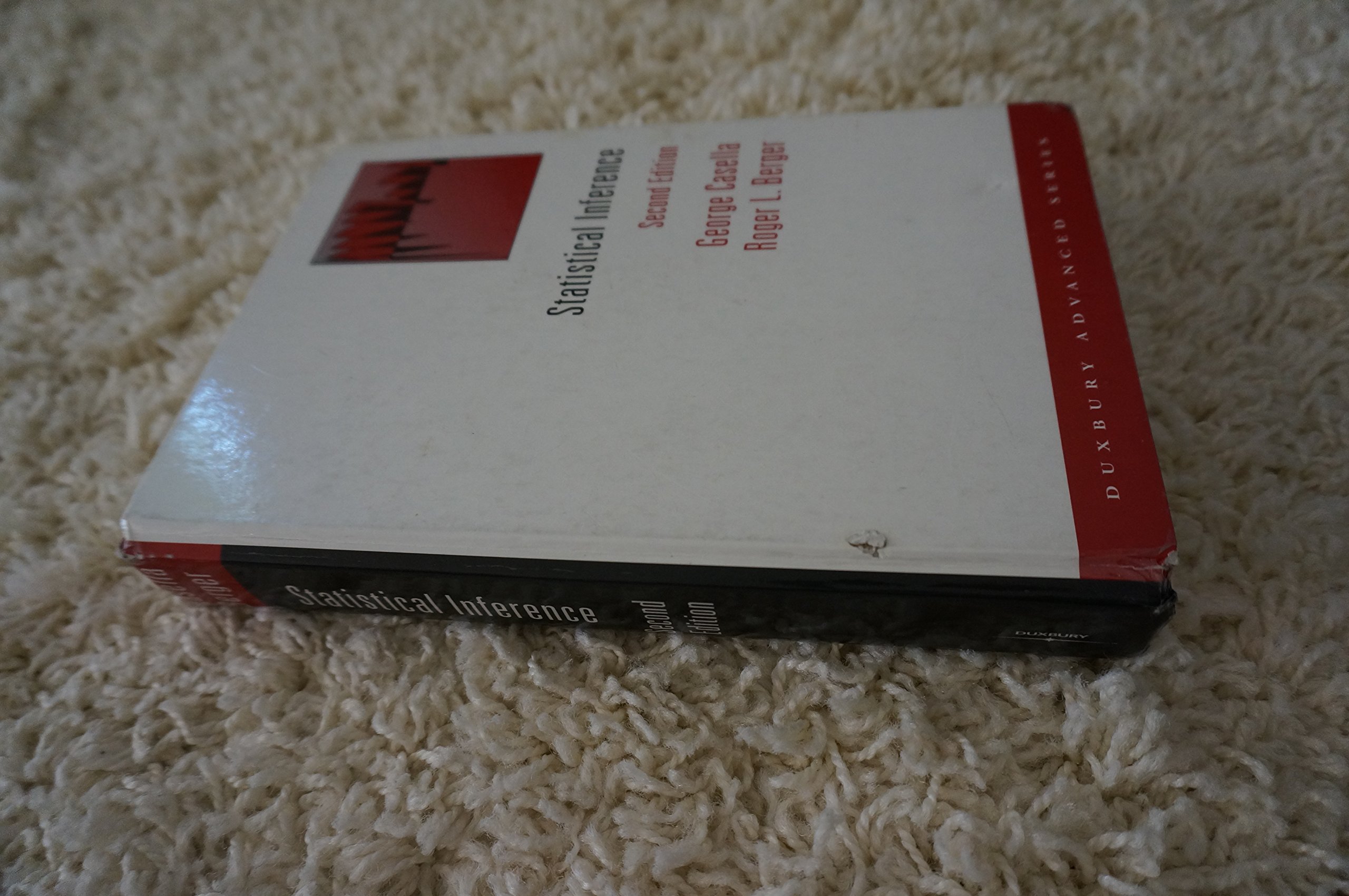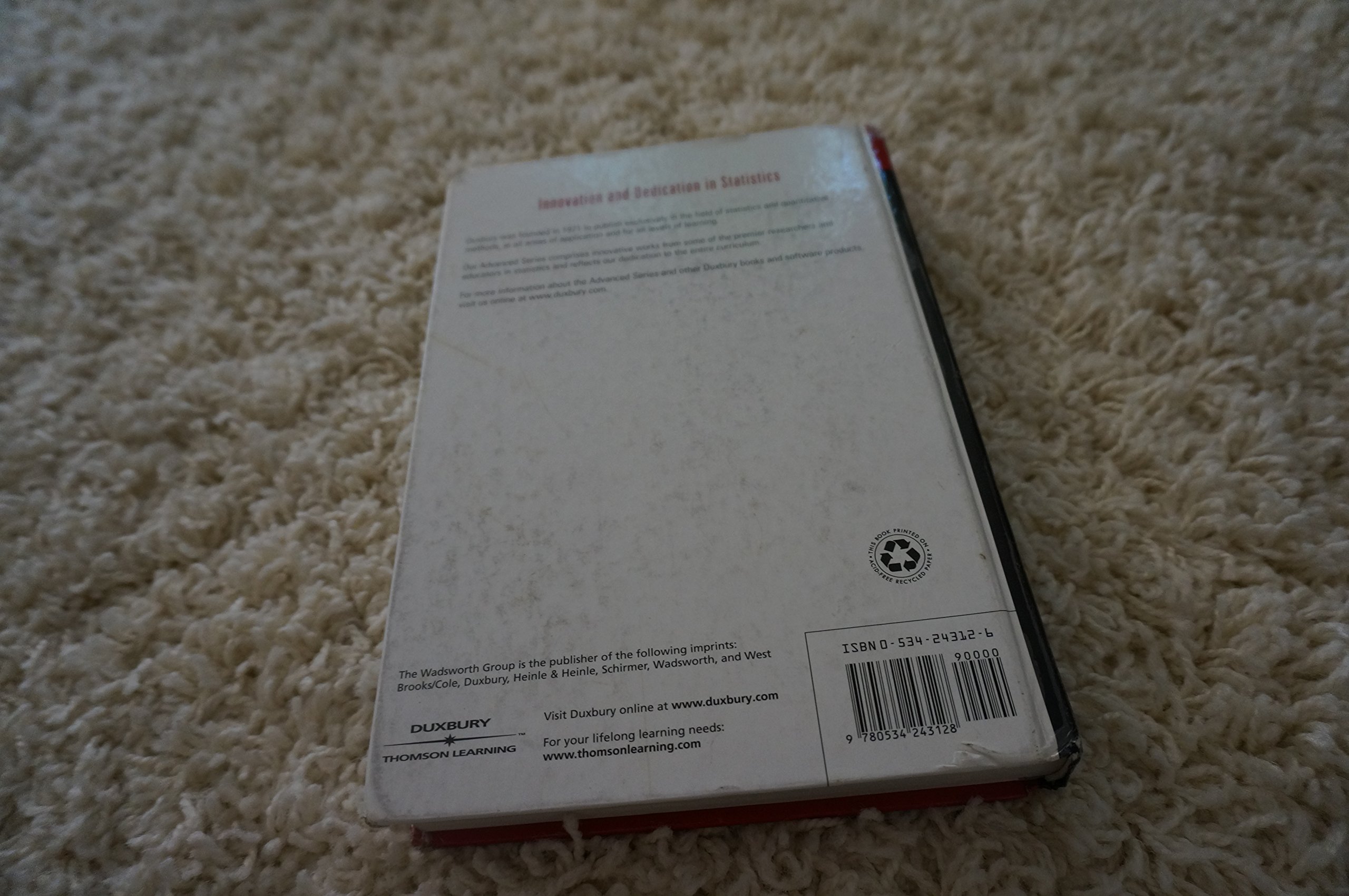




Statistical Inference
J**G
Excellent on introduction to univariate statistics
If you have basic training in calculus, you'll love this well written, easy-to-follow book. It provides a complete list of theories along with rigorous proofs and comprehensive examples, by which it is almost good for self-study.Comparing with many badly written mathematical books by famous names that gave me terrible experiences, I strongly recommend this book. As I was enjoying reading of this book, my memory constantly went back to the difficult time I had experienced when I tried so hard on Royden's "Real Analysis" or M. Artin's "Algebra". These two are classical math textbooks that are appraised by the majority of mathematicians. But from my observation, quite a few students hate these two books to some extreme, because they are so hard to follow unless you read other textbooks. In my opinion, these "bad" textbooks are good only for those who have already mastered the contents (for example, professors who have been teaching this subject for their entire lives). After completely understood the topics, I found these two books are quite useful as reference books. But still I do not think these two books are good to begin with if the reader knows little about the subjects in the books. As contrary, Casella-Berger's book is very good for entry-level students. Good knowledge in calculus is sufficient for you to easily follow the topics. Moreover, the content of this book is not simple; it contains almost all aspects of univariate statistics. (many poor calculus books are written in such a way that in order to please the students, the author intentionally omitted some important subjects and/or reduced the level of the contents. By doing so, the author became famous and the book went to best-selling. The students, without any working, are happy to wrongly believe that they know everything while they don't). "Statistical Inference" is good only because it is carefully written. Casella-Berger are not only outstanding researchers, they are also excellent educators. They know students, they know at what point students would encounter what difficulty and at this point, you definitely will find an appropriate example to help you out. The sharp contrasts between "Statistical Inference" and many "bad" textbooks in mathematics convince me that mathematicians are trying to make our lives more miserable (and this is one of the reasons I lost my interests in mathematics, though I have been good at math) while statisticians are trying to make our lives easier.At the same time of going through "Statistical Inference", I was also reading Richard Durrett's "Probability: theory and examples", a widely used typical textbook in probability for first year PhD student. Compared with majority entry-level PhDs in statistics, my background in mathematics (Lebesgue Measure, Integration and Differentiation) is no weaker, yet I experienced the same hard time as I did in some other math classes. My blame can only go to the bad written textbook, I have to read other textbook to understand the topics, and this is not good for a not-stupid and hard working student. I am always curious that among all the textbooks available, why mathematicians prefer the textbooks that will give students more hard time. For the same topic, using different approaches, students will have different feelings, why can't the professor pick up the more friendly written books for the sake of student's easy understanding and their continuing interests in the area?My belief was strengthened after completing the reading of Casella-Berger's "Statistical Inference" and R. Durrett's "Probability", that one must keep away from mathematicians as far as possible since your life will be tough if you are close to them. And as for myself, I won't do research in probability since the book "Probability" gave me the impression that more mathematicians are involved in the area of probability theory. I'll go with Casella & Berger, concentrate on the filed of statistical inferences since scientists in this particular field are trying to make our lives better and easier.In conclusion, if you need to learn statistics while having no specific back ground, I strongly recommend Casella Berger's "Statistical Inference"..
A**R
Didn't like it. It is a reference
I do not like it. I gave it five stars because it covers wide range of topics SO it is a good reference.
P**S
excellent book, authoritative
I finished the reading of the entire book, and I found it excellent in many respects. The first 5 chapters, I think should be used for a course in probability for all engineering/sciences graduate departments . Chapter 5, where the Sample/t/F/order statistics analyzed is superb. Chapters 1-7 are read easily, but starting chapter 8, the material becomes very difficult (I would say 2-3 times more effort than the previous chapters, especially chapter 8 that treats Hypothesis testing). However, Chapter 8 is very crucial for the 2nd part of the book. The book eases out at chapter 11 and 12 (except the middle 1/3 of chapter 12 about structural relationship model - I could not follow it-). I would recommend the authors for chapter 8 to put Exercises 8.34 and 8.37 right on the main text solved , because they are very critical for the understanding of the chapter.I call the book authoritative, because it brings one to a the level where can read papers on machine learning or statistics without big effort.Having said that, there are some pages/theorems that are not clearly exposed, like:- p 342 Theorem 7.3.17, in the proof, the interchange of Expectations is not clear as to why.-p 434 Theorem 9.2.14, the proof is obscured, strange, because in previous page the proof for continuous distributions is fine.- p 600, Equation 12.4.4 equality in last line is unclear
S**R
good
Good condition
J**N
For univ dtudent
Arrived in good shapeAll fine
A**Y
Challenging, but that's what it's for
Casella and Berger was used as the first year text for my stats graduate program. It provides a comprehensive introduction to probability theory (without a measure theoretic approach) along with hypothesis testing. It also provides both a frequentist and Bayesian perspective, though the focus is skewed towards the former. While not entirely necessary, prior exposure to probability theory and inference would be helpful, as the book is dense and I found it helpful to have a high level view already. Some of the problems are very challenging, and while solutions are available in the online manual, they were not always complete or correct. Going through this book was a long process, even as someone with a heavy mathematics background (Math/Econ double major) and some undergraduate exposure to mathematical statistics. However, I am grateful that my instructors did not choose the easier problems in the book as I now have a much firmer grounding in the 'why' of statistics. Reading through this text front to back 3 times in preparation for my first year PhD exam has given me a greater passion for my chosen field. It's a tough book, but if you can make it through it, the benefits to your mathematical abilities will be well worth it.
K**E
I bought the hardcover for my class and I highly recommend it over the softcover
Oh my gosh, this book! This is one of the most dense textbooks I have ever read. It is remarkably comprehensive but it takes work to get through the examples. The chapter problems are very difficult and thought provoking. I bought the hardcover for my class and I highly recommend it over the softcover, it is well bound with quality pages (the softcover pages tend to be thin) which you will need because you will be flipping through it a lot.
K**O
a wonderful nook
I really like the book.First, the book is sold at a low price;Second, the printing quality is good;Last, the book is quite readable. Concepts and statements are explained clearly and a lot of worked out examples are presented.
Trustpilot
1 week ago
3 weeks ago